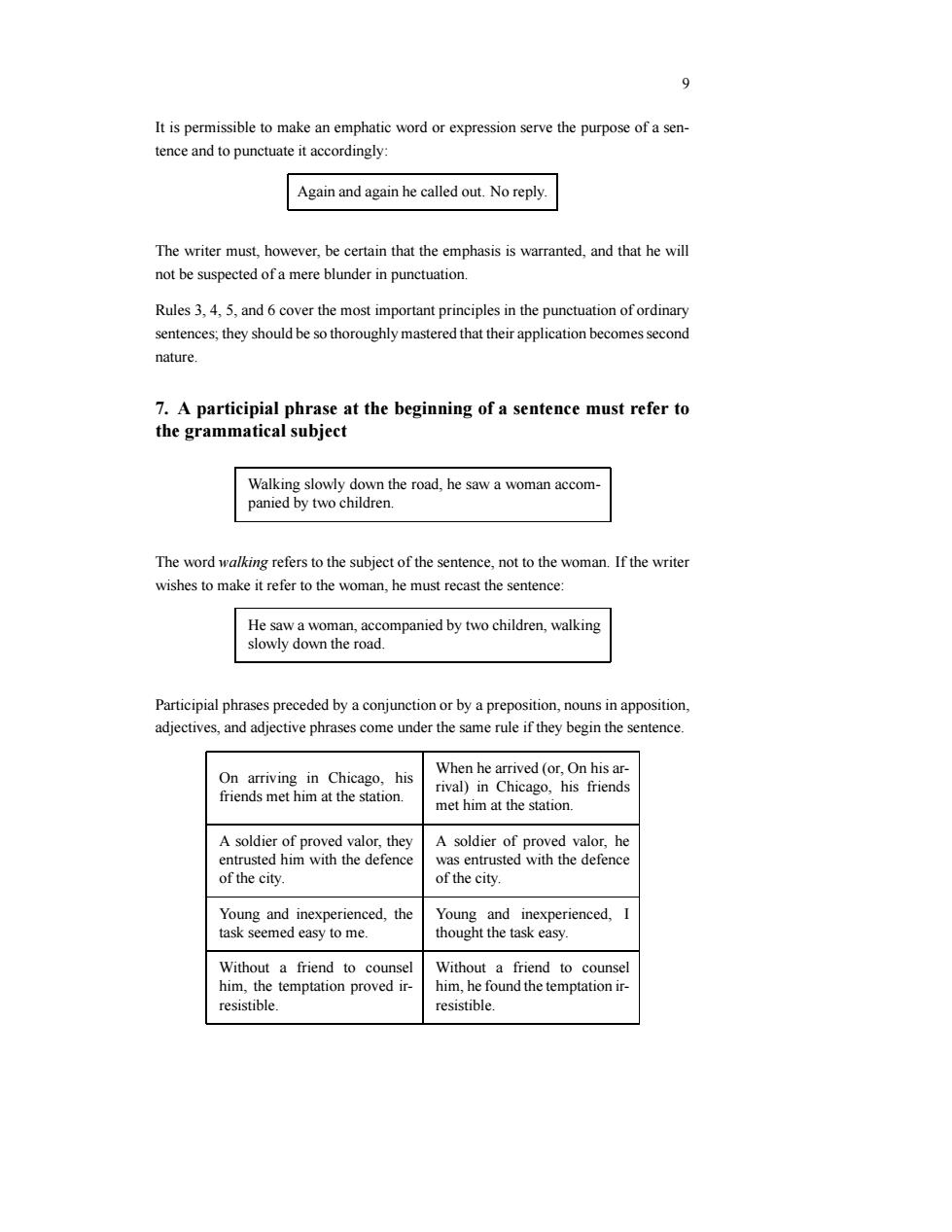正在加载图片...

9 It is permissible to make an emphatic word or expression serve the purpose of a sen- tence and to punctuate it accordingly: Again and again he called out.No reply The writer must,however,be certain that the emphasis is warranted,and that he will not be suspected of a mere blunder in punctuation. Rules 3,4,5,and 6 cover the most important principles in the punctuation of ordinary sentences;they should be so thoroughly mastered that their application becomes second nature. 7.A participial phrase at the beginning of a sentence must refer to the grammatical subject Walking slowly down the road,he saw a woman accom- panied by two children. The word walking refers to the subject of the sentence,not to the woman.If the writer wishes to make it refer to the woman,he must recast the sentence: He saw a woman,accompanied by two children,walking slowly down the road. Participial phrases preceded by a conjunction or by a preposition,nouns in apposition, adjectives,and adjective phrases come under the same rule if they begin the sentence. On arriving in Chicago,his When he arrived (or,On his ar- rival)in Chicago,his friends friends met him at the station. met him at the station. A soldier of proved valor,they A soldier of proved valor,he entrusted him with the defence was entrusted with the defence of the city. of the city. Young and inexperienced,the Young and inexperienced,I task seemed easy to me. thought the task easy. Without a friend to counsel Without a friend to counsel him,the temptation proved ir- him,he found the temptation ir- resistible. resistible.9 It is permissible to make an emphatic word or expression serve the purpose of a sentence and to punctuate it accordingly: Again and again he called out. No reply. The writer must, however, be certain that the emphasis is warranted, and that he will not be suspected of a mere blunder in punctuation. Rules 3, 4, 5, and 6 cover the most important principles in the punctuation of ordinary sentences; they should be so thoroughly mastered that their application becomessecond nature. 7. A participial phrase at the beginning of a sentence must refer to the grammatical subject Walking slowly down the road, he saw a woman accompanied by two children. The word walking refers to the subject of the sentence, not to the woman. If the writer wishes to make it refer to the woman, he must recast the sentence: He saw a woman, accompanied by two children, walking slowly down the road. Participial phrases preceded by a conjunction or by a preposition, nouns in apposition, adjectives, and adjective phrases come under the same rule if they begin the sentence. On arriving in Chicago, his friends met him at the station. When he arrived (or, On his arrival) in Chicago, his friends met him at the station. A soldier of proved valor, they entrusted him with the defence of the city. A soldier of proved valor, he was entrusted with the defence of the city. Young and inexperienced, the task seemed easy to me. Young and inexperienced, I thought the task easy. Without a friend to counsel him, the temptation proved irresistible. Without a friend to counsel him, he found the temptation irresistible